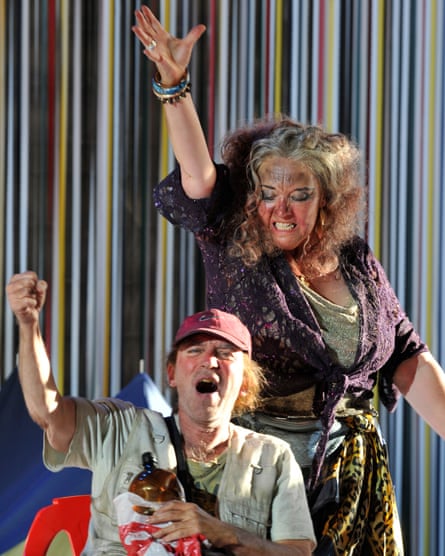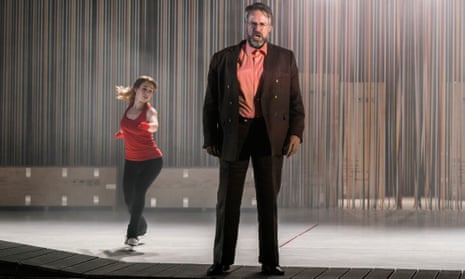New operas don’t feature on the summer opera circuit in the UK anything like as often as they should, so Garsington’s premiere of David Sawer’s The Skating Rink, which the festival commissioned, is very much a step in the right direction. It’s based on the novel of the same name by the Chilean writer Roberto Bolaño, first published in 1993.
Set in a seaside town on the Costa Brava in the early 1990s, The Skating Rink is Bolaño’s take on the murder mystery. Its central figure is an ice skater, Nuria, who has Olympic aspirations, until she is dropped from the Spanish squad and has her funding withdrawn. One of her admirers, Enric, head of the town’s social services, then builds a skating rink for her in the basement of a dilapidated mansion, diverting civic funds to do so. But the body of a homeless woman, Carmen, who has been evicted from a campsite on Enric’s orders, is subsequently discovered stabbed on the ice there, and everything unravels.
The novel has three narrative strands, each telling the story from the perspective of a different protagonist, none of whom is entirely reliable, and Rory Mullarkey’s libretto more or less preserves that original structure. Each of the three acts presents the same story from the perspective of a different character, adding a coda in which the identity of the murderer is revealed. It also keeps the element of social satire, the gradually revealed parable of the trickle-down effect of political expediency. The mayor, Pilar, wants to boost her chances in the coming election so instructs Enric to rid the town of vagrants; he, in turn, instructs the owner of a local campsite, Remo (another admirer of Nuria), to evict Carmen and her friend, and Remo gets his nightwatchman, Gaspar, to do so.

There’s about 100 minutes of music, and it’s certainly a taut and coherent plot. But Mullarkey’s text tends to be rather flat and rhythmically deadening, and perhaps as a result, Sawer sets a bit too much of it as declamation, only rarely allowing the protagonists moments of lyrical expansiveness. Carmen, who gets to sing an extended number in the second act, echoing her earlier life as an opera singer, has the only real set piece. Otherwise, it’s all rather too evenly paced, except when Sawer’s orchestral music gets the chance to drive the drama forward. With orchestration that’s carefully varied from act to act – predominantly strings in the first, saxophone and low woodwind in the second, and prominent brass in the third – there are some striking effects, lingering textures and telling solo lines, in a score that increasingly confounds expectations as it goes along.
Stewart Laing’s production – he’s director and designer – is unfussy and clear, with the stage dominated by the skating rink. The role of Nuria is shared between the soprano Lauren Zolezzi, and a skater, Alice Poggio. As Enric, Grant Doyle is the nearest thing in the opera to a fully rounded, sympathetic character; but none of the others – Ben Edquist as Remo, Sam Furness as Gaspar, not even Susan Bickley’s Carmen – come into sharp focus. All are fine singers, and Garry Walker’s conducting is first rate too, but in the end you don’t really care who committed the murder, or why, and that’s a problem.
- At Garsington, Wormsley, until 16 July. Box office: 01865 361636.

Comments (…)
Sign in or create your Guardian account to join the discussion